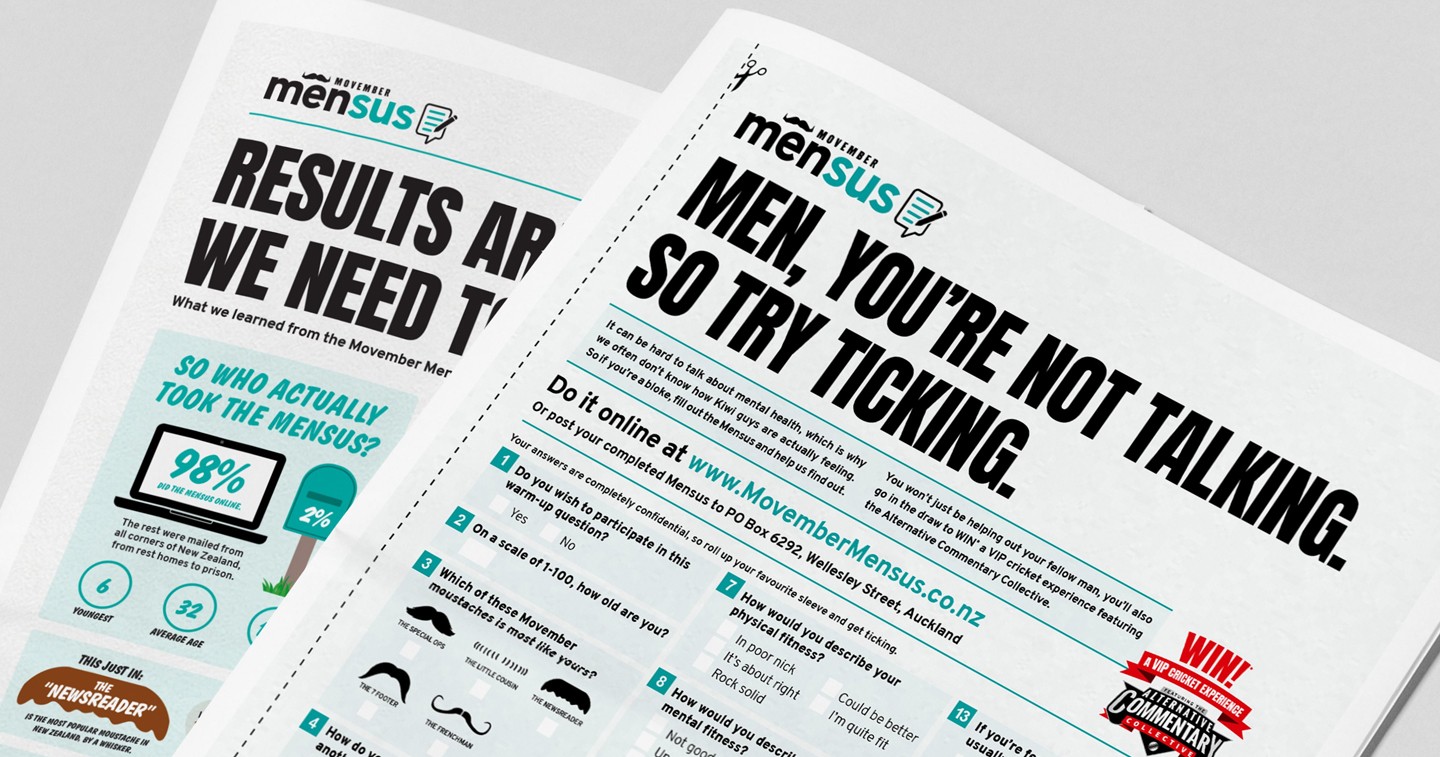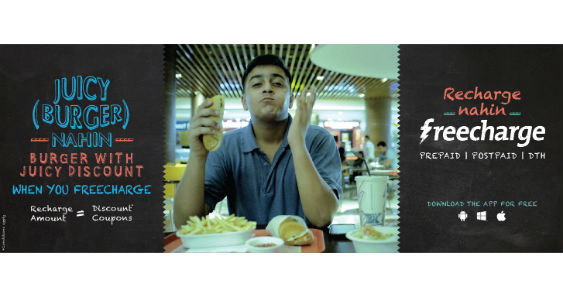AUCKLAND, NEW ZEALAND – BC&F Dentsu has claimed Gold, Silver and two Bronze trophies at the 2020 APAC Effies, which were held virtually for the first time.
The New Zealand-based agency’s ‘Mensus’ campaign—an initiative for Movember designed to encourage men to talk more openly about their feelings—made a strong impression. It won Gold in the Government/Institutional category, Silver in Small Budget Services, and Bronze in Positive Change/Social Good/Non-Profit.
The work’s central idea was to help reduce the rate of suicide among male New Zealanders by having them take part in a census relating to mental wellbeing. Questions addressed topics such as personal image and causes of stress.
The initiative acknowledged the fact that men are typically reluctant to give voice to intimate feelings or reveal personal weakness. The act of responding to questions privately encouraged self-reflection, which is seen as an important step to preventing suicide.
BC&F Dentsu won its other Bronze award (in the Sustained Success category) for ‘The Second Act’ for the New Zealand Heart Foundation. The work drew attention to the dangers of heart disease with an acting challenge that helped people understand and recognise the symptoms of a heart attack.
Commenting on BC&F Dentsu’s wins, Luke Farmer, Managing Partner said: “We’ve always had a focus on delivering distinctive work for our clients with effectiveness at its heart. So, it’s great to see this being recognised across our clients and super proud to see Meridian Energy, Heart Foundation and Movember as finalists and have the last two convert into Gold, Silver and Bronze.”
Dentsu BC&F was formed in 2016 when Dentsu Aegis Network acquired the acclaimed independent agency Barnes, Catmur & Friends.
Dentsu Tokyo also picked up Bronze, in the Positive Change category, for ‘Eat Your Words’. The work for Japanese publisher Froebel-Kan aimed to reduce instances of hate speech and took the form of an experiential picture book for children. The book contained edible words whose tastes represented the positive and negative emotions that certain words elicit—for example, bitter and sour for ‘hate’ and refreshing cider for ‘sorry’.
The campaign generated significant interest in Japan, with the national broadcaster NHK describing it as “a great way to re-examine the way words are used”.










